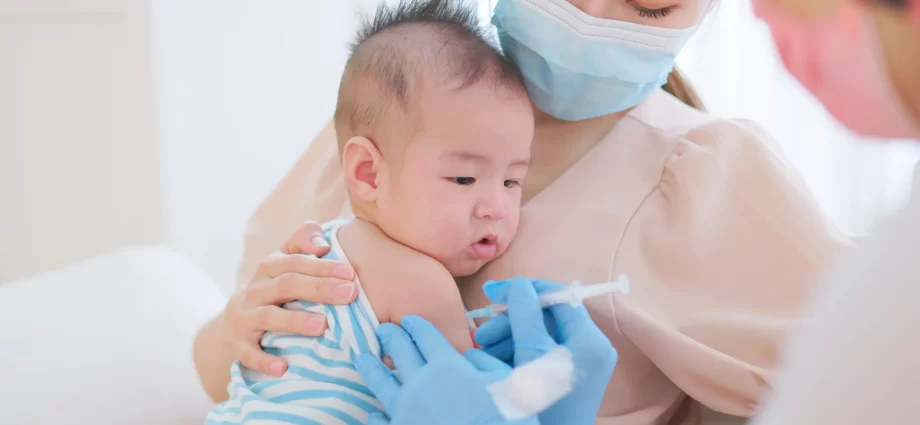Baby vaccination in Singapore is an essential part of early childhood care, protecting infants from potentially life-threatening diseases. The National Childhood Immunisation Schedule offers a clear framework to help parents stay on track with essential jabs. This article walks you through each key milestone so you can feel confident and informed every step of the way.
Understanding the Role of Baby Vaccinations
Vaccines are one of the most effective ways to prevent the spread of infectious diseases in the community. By immunising babies early, we help them build resistance before they are exposed to serious illnesses. It’s a preventive step that supports both individual and public health.
A baby’s immune system is still developing, which makes timely vaccination critical for strong, long-lasting immunity. Vaccines stimulate the body to create protective antibodies, equipping babies to fight off infections in the future. That’s why the schedule is carefully timed to match immune readiness.
There are two types of immunity: passive (from the mother) and active (from vaccines). Passive immunity fades after a few months, which is why babies need vaccines to build their own defences. The right timing ensures the vaccines are both safe and effective.
Singapore’s Recommended Baby Vaccination Schedule
At Birth
Soon after birth, babies receive the BCG vaccine to protect against tuberculosis and the first dose of the Hepatitis B vaccine. These are critical because they offer early protection during a highly vulnerable stage. Baby vaccination in Singapore starts from day one to ensure a strong foundation.
At 1 to 2 Months
The second dose of Hepatitis B is usually given between the first and second month. Completing the full course is important for lifelong protection against this liver infection. Even if your baby seems healthy, sticking to the schedule is vital.
At 3 to 5 Months
During these months, babies receive multiple vaccines such as the 5-in-1 (which includes DTaP, IPV, and Hib), Pneumococcal, and Rotavirus vaccines. These are given in multiple doses to strengthen immunity through repetition. This period involves several clinic visits but each one plays a key role.
At 6 Months
At six months, babies get their final dose of the 5-in-1 vaccine, their second Pneumococcal shot, and the last Rotavirus vaccine. By now, your baby will have built up a stronger immune response. Continuing with the schedule keeps protection levels high.
At 12 Months
Once your baby turns one, they’ll receive the MMR vaccine to guard against measles, mumps, and rubella, along with a Pneumococcal booster. These live vaccines are powerful and provide long-term immunity. This is an important transition from infancy into toddlerhood.
At 15 to 18 Months
During this stage, babies receive a booster for the 5-in-1 vaccine, a second MMR dose, and the Varicella vaccine for chickenpox. Boosters help to top up immunity and close any gaps from earlier doses. Baby vaccination in Singapore continues steadily through these early years for full coverage.
Optional and Catch-Up Vaccinations
Optional Vaccines in Singapore
Some vaccines, like Influenza and Hepatitis A, are not part of the mandatory schedule but are still available. Parents may opt for these depending on family history, travel plans, or personal preference. It’s worth discussing these with your healthcare provider to make an informed choice.
What to Do If You Miss a Milestone
Missing a vaccination isn’t ideal, but it’s not irreversible. Catch-up plans are available to get your baby back on track safely. Always consult with a professional before rescheduling any vaccinations.
What Parents Should Know Before and After Each Shot
Preparing Your Baby for a Vaccination Visit
Feeding your baby beforehand and bringing comforting items like a blanket or toy can help reduce stress. Expect a quick appointment, but be prepared for some fussiness. Staying calm and reassuring helps your baby feel secure.
Common Side Effects and When to Seek Help
Mild fever, redness at the injection site, and fussiness are all normal after a vaccine. These usually resolve within a day or two and can be managed at home. If your baby has a high fever, persistent crying, or a rash, seek medical advice promptly.
Keeping Track and Staying on Schedule
Using a Vaccination Record to Stay Organised
Keep all vaccination records in a dedicated health booklet or app so you don’t miss any dates. This documentation is important for school entry, overseas travel, and health emergencies. Staying organised ensures you’re always ready.
Reminders and Planning Ahead
Set reminders on your phone or mark dates in a physical calendar to stay ahead of schedule. Life gets busy, but these appointments are too important to overlook. With proper planning, baby vaccination in Singapore becomes a smooth and manageable part of parenthood.
Key Takeaways
Vaccinating your baby on time helps protect them from serious diseases at every stage of early development. Following Singapore’s immunisation schedule keeps your child safe and ensures full coverage. Stay informed, plan ahead, and trust the process to support your baby’s long-term health.

